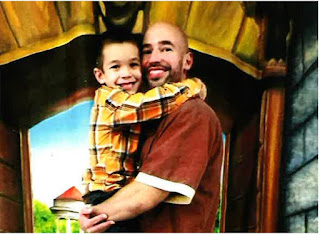By Felix Rosado
“What’s up wit those guys?” I asked.
My new celly, Tito, and I stood outside of the 6-by-12-foot cage we were now forced to share. It was my first day at Graterford State Prison.
“That’s Jo Jo. He been here thirty-five. The other guy, Skip, he got like thirty in.”
My heart dropped.
What prompted my question in the first place was these two men walking laps around the eighth-mile-long cell block wearing bell bottoms, butterfly collars, and humongous afros, cool as can be. In 1996.
I tried to play it off, not wanting to come off as naive. But inside, I shook. My eighteen–year–old brain couldn’t fathom a human being spending that much time in prison, almost twice my existence.
“So what did they do? … How many life bids they got?”
Tito, who had five in on his, looked me straight in the eye. “Lil’ brother-they got what you got.”
The next morning, I was in the law library trying to withdraw my guilty plea.
See, like most people who’d never stepped foot in a Pennsylvania state prison, I’d thought life meant twenty years, fifteen if you behave. That’s what my lawyer told me. I mean, if you’re blessed to live to sixty, that’s a third of your life. And if you get locked up in your teens or early twenties, it’s all your best years. But here in the Commonwealth, home of the world’s first penitentiary, life means death.
Today about 54,000 people in prison across the US are condemned to the sentence referred to as life without parole. Add the other 109,000 doing life with parole and 45,000 doing what some call “virtual life” or “defacto life,” and we have a carceral state in which one in seven people is serving a life or virtual life sentence. (All stats are rounded off from Still Life: America’s Increasing Use of Life and Long-Term Sentences, Ashley Nellis, The Sentencing Project, 2017. In it, virtual life is defined as a sentence of at least fifty years. )
Isn’t it ironic, that we call death behind bars life? Cruel even? As popularity for death by execution has waned over the past few decades, death by incarceration has skyrocketed. In Pennsylvania alone, 5,400 are permanently incarcerated, 760 here at Graterford. The SCOTUS decisions in Miller v. Alabama (2012) and Montgomery v. Lousiana (2016), banning mandatory life without parole for those who committed crimes while under eighteen, have cracked the steel gate slightly, allowing a ray or two of light to penetrate. Over 500 in PA, the most in the world, 300 from Philadelphia alone, are slowly being reconsidered for a chance to one day live outside of prison fences and walls. So far, most of the hundred or so released had spent over three decades in. Joe Ligon, whose been incarcerated the longest on the planet, has been caged since 1953, when he was age fifteen. He still lives on B-Block and sweeps the kitchen corridor every day at lunch time.
At the time of my arrest in 1995, I had no idea this country was at the height of a highly politicized and racist tough-on-crime movement that was swallowing up poor people of color by the thousands and decimating entire communities. For two decades there was nothing to look forward to behind this thirty-foot-high concrete wall but a slow agonizing death in a prison infirmary, where resident hospice volunteers sit by your side around the clock in four-hour shifts. Most of us – those who hadn’t given up completely – were caught up fighting our individual battles in the courts with our miniscule resources hoping to be one of the less than 1% who get convictions overturned on appeal. I was one of them. Then came one of those moments of clarity.
I realized my freedom fight was inextricably tied to the liberation of all. In January 2012, a few brothers and I founded Right 2 Redemption, a group whose sole mission is to end death by incarceration via public education, political action, and people power. In 2015 we, along with three Philadelphia-based organizations — Decarcerate PA, Fight for Lifers, and Human Rights Coalition –joined forces to form the Coalition to Abolish the Death By Incarceration (CADBI). Currently, bills introduced in the state House and Senate seek to provide parole eligibility after fifteen years. There’s still much work to do with a conservative dominated state congress, but the movement is growing.
Language matters. It not only shapes our reality but it also gives us the power to shape the reality around us. Too many death penalty “abolitionists” advocate for death in prison precicely because we call it life. Truth is, both versions begin and end the same way: bodies vertical, bodies horizontal.
Let’s call this sentence by it’s true name. If we as a society can see value and dignity in those in prison for murder, there’s hope for all of us. Reform confined to so-called “nonviolent drug offenders” is no reform at all. If we can see redemption as an innate human quality that no one should be denied, we can begin to do justice in ways we’d all want to for ourselves, for our own children. If not, some young dude will be kicking it with his new celly one day and ask, “What’s up wit dude?”
“Oh, that’s Phill … ”



1 Comment
Unknown
September 1, 2019 at 7:58 pmHi Felix, thanks for sharing your perspective. I hope you keep lifting up your voice. Nobody better to reform our criminal justice system then those who are direct victims of it.